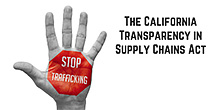If you’re like most savvy manufacturers, you know to watch out for changes in labor laws that could affect you in countries where you have factories or where you sell your products. We’ve all seen examples of how manufacturers were held accountable for the safety of workers and consumers alike.
|
ADVERTISEMENT |
As an example of the former, we’re all familiar with how government officials and factory owners faced criminal charges for the Rana Plaza collapse two years ago, and that a social compliance audit potentially could have prevented that tragedy. We’ve also discussed how North America’s largest hardwood flooring distributor faced a quality control disaster when it was discovered that its products didn’t meet California Air Resource Board (CARB) standards for safety.

…
Add new comment